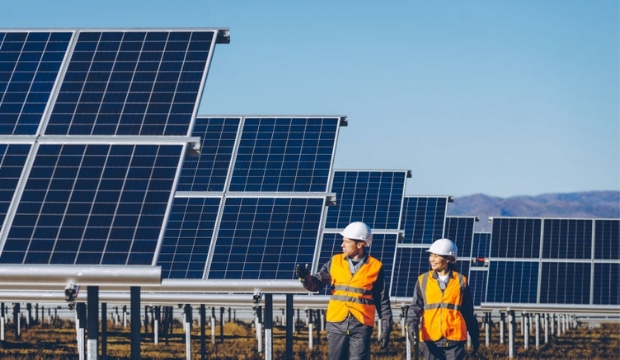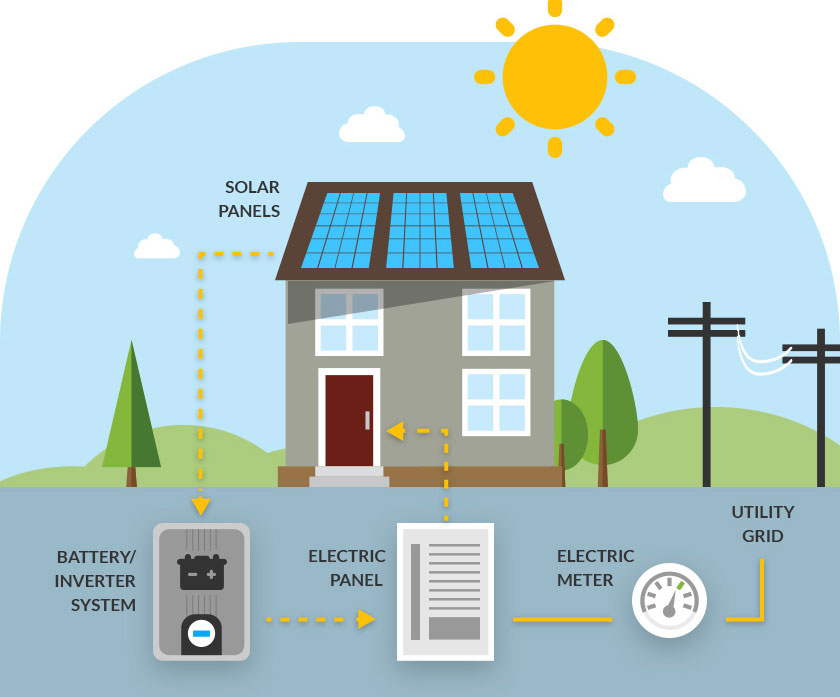Solar Companies In Virginia Fundamentals Explained
Solar Companies In Virginia Fundamentals Explained
Blog Article
Commercial Solar Providers Virginia: Lumina Solar Specializes In Supplying Advanced Photovoltaic Solutions For Residences And Businesses
History and Founding
Have you ever questioned how a solar panel business springs from a mere trigger of inspiration into a powerhouse of sustainable energy? It frequently starts with a vision-- one fueled by a blend of development, determination, and a pinch of serendipity. The journey of lots of solar business mirrors the development of the innovation itself: from large, inefficient panels to streamlined, high-efficiency marvels utilizing the sun's bounty.
The Early Days
In the late 20th century, when solar energy was still a specific niche principle, pioneers planted seeds for what would become an international movement. Think of a small workshop filled with curious engineers, tirelessly try out photovoltaic cells. Their passion was palpable, typically driven by a desire to combat climate modification and lower reliance on fossil fuels.
One such anecdote has to do with a founder who, inspired by a camping journey, recognized that even in remote areas, the sun might power essential devices. This basic observation sparked a business's mission to equalize access to tidy energy.
Establishing Concepts

- Development: Continuously pushing the borders of solar technology to improve performance and toughness.
- Sustainability: Devoting to environment-friendly manufacturing and reducing carbon footprints.
- Ease of access: Making renewable resource solutions cost effective and practical for daily users.
Turning points in Development
| Year | Key Occasion |
|---|---|
| 1985 | Company founded in a little garage, focusing on research study and development. |
| 1995 | Business solar panel item launched, acquiring local attention. |
| 2005 | Broadened to international markets, welcoming worldwide renewable energy goals. |
| 2015 | Presented innovative photovoltaic panel innovation with boosted energy conversion. |
Isn't it interesting how these incremental actions, frequently ignored, form the energy landscape today? The solar panel company story is not almost innovation; it's about a ruthless quest for a brighter, cleaner future.

Innovations in Solar Panel Technologies
Ever observed how some solar panels gleam brighter and last longer? It's not magic; it's the science of photovoltaic efficiency. Modern solar panel business invest greatly in innovations like bifacial cells, which catch sunshine from both sides, enhancing energy harvest without broadening roofing space. Have you ever questioned why some panels perform much better on cloudy days? That's due to advances in thin-film solar innovation, which prospers under diffused light conditions.
Item Variations Tailored to Unique Needs
One size never ever fits all. Photovoltaic panel service providers now offer:
- Monocrystalline panels for optimum performance and sleek visual appeals, suitable for space-constrained roofs.
- Polycrystalline panels, which use an affordable alternative without sacrificing too much output.
- Building-integrated photovoltaics (BIPV), combining solar tech effortlessly into architectural elements like windows and facades.
Picking the ideal product isn't just about in advance cost; it has to do with matching your environment, energy goals, and long-term cost savings. Homes shaded by trees require panels that stand out in low-light circumstances, something numerous ignore up until energy bills climb suddenly.
Technical Tips for Ideal Choice
- Evaluate the temperature level coefficient-- lower worths indicate panels lose less performance on hot days.
- Try to find panels with boosted anti-reflective coverings to make the most of light absorption.
- Consider the panel's warranty not simply for problems, but for ensured power output over decades.
- Don't ignore the importance of the inverter innovation coupled with the panels; it can make or break your system's performance.
Beyond Panels: Emerging Patterns
Think of photovoltaic panels that adjust their angle immediately to go after the sun-- tracking systems are becoming more available, increasing yield considerably. Or solar tiles that mix invisibly into your roofline, transforming your home into a website silent, self-dependent power generator. These developments are improving what a photovoltaic panel business offers-- not simply items, however integrated energy solutions.
Market Existence and Global Operations
Ever question why some photovoltaic panel business appear to grow up in every corner of the globe while others hardly make a ripple? The distinction lies not just in innovation but in mastering the art of navigating diverse markets. Broadening globally is like planting seeds in different climates-- you need to understand each environment's distinct conditions to prosper.
Take, for circumstances, the complex dance of logistics and supply chain management. Shipping panels midway throughout the world isn't practically range; it's about timing, customizeds, tariffs, and adapting to regional need variations. A business with robust worldwide operations anticipates these variables, ensuring panels arrive on schedule without inflating expenses. This foresight is no little feat and frequently separates industry leaders from followers.
Secret Methods for Expanding Market Existence
- Localized manufacturing: Developing production hubs near target markets lowers shipping delays and import intricacies.
- Strategic partnerships: Teaming up with regional companies speeds up market penetration and constructs trust.
- Adaptive product style: Customizing photovoltaic panel tech to weather, sun intensity, and infrastructure subtleties enhances efficiency and acceptance.
What about the human aspect? Solar panel business running worldwide must fix up cultural distinctions and regulative subtleties without forgeting their core objective. For example, what operate in a sun-drenched desert may fail in a damp coastal area. Often, the most ingenious option is just listening-- absorbing regional insights to fine-tune innovation and technique.
Experts often recommend a phased rollout instead of a shotgun expansion. Why risk overextension when determined growth develops sustainable momentum? Scaling carefully means balancing aspiration with functional strength - Solar Panel Installation Virginia. After all, in the race for sustainable energy supremacy, patience can be as important as speed
Environmental Effect and Sustainability Practices
When photovoltaic panels first emerged, numerous assumed they carried no environmental luggage. The reality is more nuanced. The production of solar batteries includes unusual earth metals and energy-intensive processes, which can leave a substantial carbon footprint before the panels even reach rooftops. The real ecological cost depends greatly on the sustainability practices utilized by the photovoltaic panel business throughout the lifecycle of their products.
How frequently do we stop briefly to consider what occurs to photovoltaic panels at the end of their useful life? Unlike batteries or electronics, photovoltaic panels can last 25-30 years, but disposal and recycling paths remain underdeveloped in many regions. A business dedicated to lowering environmental damage will have a robust strategy for recycling photovoltaic materials, restoring valuable silicon, glass, and metals to prevent garbage dump accumulation.
Key Sustainability Strategies
- Using low-impact manufacturing strategies that reduce water and energy intake.
- Executing closed-loop systems to recycle production waste back into brand-new panels.
- Taking part in transparent supply chain audits to guarantee ethical sourcing of basic materials.
- Designing panels for easier disassembly to assist future recycling efforts.
It's worth noting that some solar companies have pioneered innovative methods, such as integrating biodegradable elements or using less toxic chemicals during fabrication. This not just minimizes ecological strain but also sets a precedent for the market. The concern stays: can the solar industry genuinely pivot towards a circular economy design without compromising performance or price?
Specialist Tips for Evaluating Sustainability
- Inquire about the company's dedication to carbon-neutral production and whether they balance out emissions.
- Examine if they partner with accredited recycling facilities dedicated to solar panel waste.
- Search for transparency reports detailing ecological impacts and sustainability goals.
- Think about the longevity and guarantee of panels as an indirect step of resource effectiveness.
In the end, selecting solar energy needs to mean more than just slashing electrical power bills; it's about supporting a future where energy is gathered properly and waste is thoughtfully handled. Photovoltaic panel companies that welcome this philosophy not only light up homes but likewise cast a brighter light on sustainable innovation.
Report this page